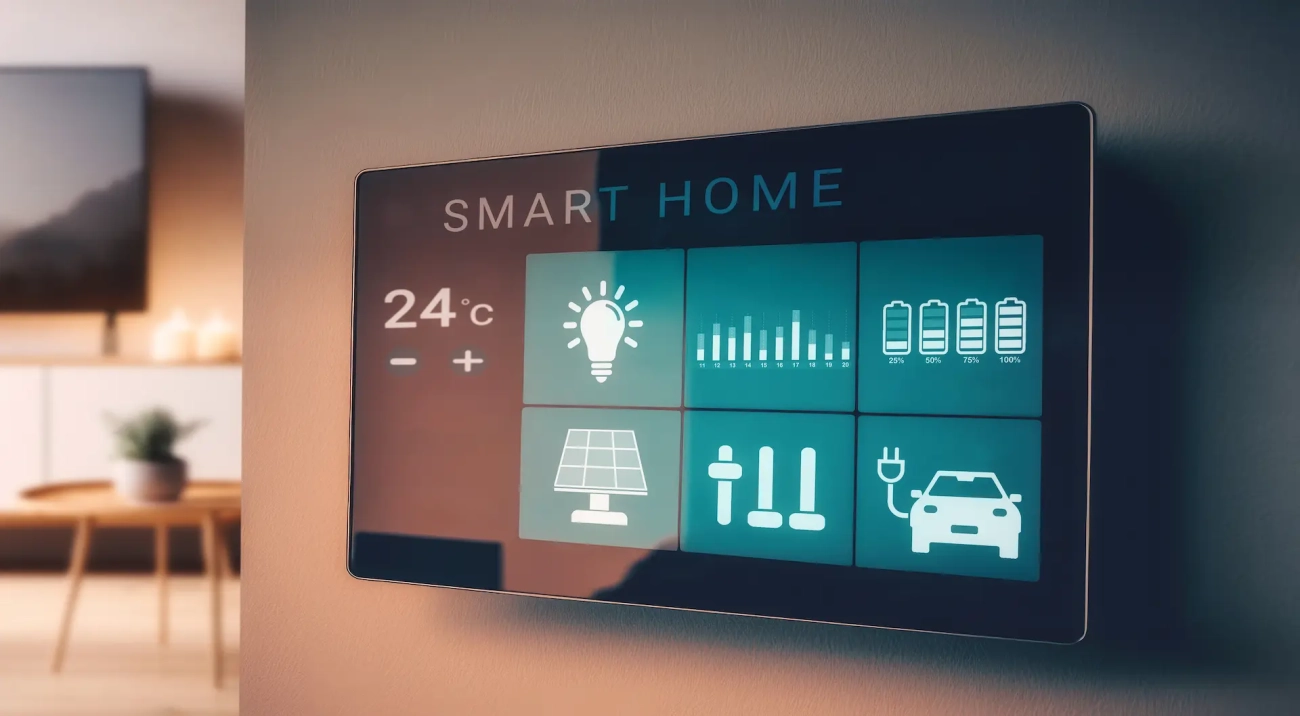The way we live is changing at a rapid pace. It’s no longer just about finding a well-located apartment or one with good lighting; now we want spaces that adapt to us, make life more comfortable, and, if possible, more sustainable. In this scenario, home automation has become an increasingly important element. Smart homes are already here, and they’re here to stay.
What is Home Automation and How Does it Work in the Home?
Home automation refers to a set of technologies applied to the automation of the home. Essentially, it involves connecting various home systems (lighting, climate control, blinds, appliances, locks, security) so they can be controlled remotely via mobile or voice commands, or automatically through programming.
Most home automation systems work through a central network connected to the internet, which can be managed via a mobile app or through virtual assistants. Thanks to sensors, routines, and algorithms, the home can respond to your presence, adapt to your schedule, or even anticipate your needs.
It’s not just about comfort; we’re also talking about efficiency, security, and personalization—three pillars that define the new way of living in our spaces.
Advantages of Living in a Smart Home
Living in a smart home not only impresses at first glance, it also radically changes the day-to-day experience. Here’s how:
Security in Smart Homes
One of the most valued aspects of home automation is security. Smart homes can feature:
- Surveillance cameras accessible via mobile.
- Motion, door, and window sensors.
- Alarms connected to apps or external services.
- Electronic locks with remote access.
All of this allows total control even when you’re away. Moreover, many solutions send instant notifications of any unusual activity, providing peace of mind from day one.
Energy Efficiency: How Home Automation Helps Reduce Consumption
Another major benefit is energy efficiency. How many times have we forgotten to turn off a light or the air conditioner? With a home automation system, that’s no longer an issue:
- Lights turn off automatically when leaving a room.
- Climate control adjusts according to the time, outside temperature, or presence of people.
- Schedules or routines can be programmed to optimize consumption.
This translates to reduced energy costs and more responsible use of resources. The planet will thank you… and so will your wallet.
Comfort for Tenants in a Smart Home
Imagine coming home to the perfect temperature, the lights gently turning on, and your favorite playlist starting to play. This isn’t a fantasy; it’s what home automation makes possible.
Comfort is a key factor, especially for those who don’t want to waste time learning how every device works. Everything is managed via mobile or simple voice commands. You can even customize the environment to suit your style: more light in the mornings, a relaxing atmosphere at night, automation for working from home… Everything flows better in a space designed for you.
Smart Homes for Temporary Tenants: Technology to Make Your Stay Easier
Until recently, this type of technology was only found in permanent or luxury residences. Today, however, more and more landlords are equipping their rental properties with home automation systems.
For those who travel for work, do temporary projects in another city, or simply need a comfortable, modern home for a few weeks, these homes are a true advantage.
- Keyless access via codes or apps (ideal for autonomous check-in).
- Temperature control from your mobile, even before you arrive.
- Ambient lighting programmed for every time of day.
- Integration with calendars, alarms, or personalized reminders.
Home Automation in Rentals: How Technology Adds Value
Landlords who invest in home automation improve the tenant experience and add real value to their property.
A home with smart systems rents faster, ranks better in search engines, and receives higher ratings. Plus, it allows:
- Managing energy consumption remotely.
- Detecting breakdowns or issues before they become problems.
- Offering a premium service without significantly increasing operating costs.
- Performing more efficient and predictive maintenance.
The Future of Smart Homes: What’s Ahead?
The evolution doesn’t stop. In fact, many of the advancements that now seem like science fiction will soon be in our homes. Today, we can already glimpse some trends that are already underway:
- Adaptive artificial intelligence that learns from your routines and personalizes your environment.
- Advanced environmental sensors to measure air quality, humidity, noise, or light.
- Energy systems connected to solar panels or smart batteries.
- More natural voice interaction that is increasingly fluid and contextually precise.
- Total integration with urban mobility, remote work, and digital health.
If you need temporary accommodation, book with BizTrip and choose from apartments designed to make you feel at home.
Book Now on BizTrip

